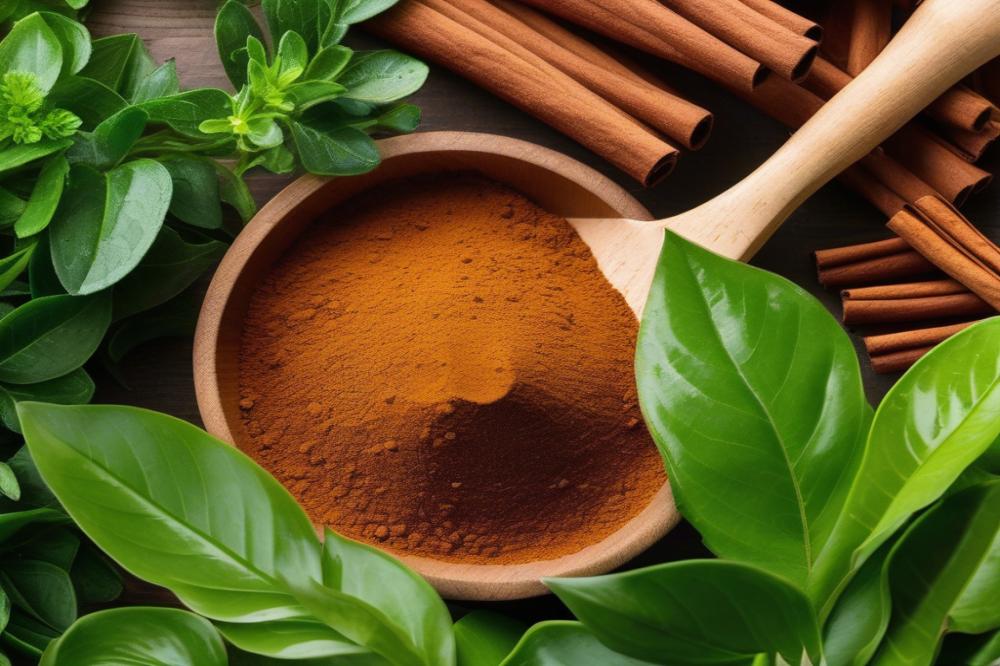The Role of Cinnamon Powder in Preventing Fungal Growth
Cinnamon Powder has gained attention among gardeners and health enthusiasts alike. This spice is more than just a flavor enhancer; it serves a vital role in organic gardening. Many gardeners are seeking effective alternatives to synthetic chemicals. The rising awareness surrounding the environmental impact of pesticides is driving this shift.
Natural remedies are becoming increasingly popular. People want safer options that protect both plants and the environment. Fungal Growth Prevention is a major concern for many. Traditional treatments often involve harsh chemicals that can harm beneficial insects and pollinators. Fortunately, there are solutions that come from nature.
The antifungal properties of cinnamon powder make it a valuable ally. It has shown promising results in combating various fungi that threaten plant health. Not only does it work against fungal pathogens, but it also contributes to overall health benefits. Research has highlighted the spice’s antimicrobial activity. This means it can help prevent spoilage and extend food preservation.
Herbal medicine has long utilized cinnamon for its healing properties. This spice is often incorporated into dietary supplements and essential oils. Its versatility as a plant-based treatment cannot be overstated. Exploring cinnamon benefits opens doors to more sustainable gardening practices. By embracing natural methods, gardeners can promote plant health without relying on chemicals. This approach not only supports the environment but also fosters healthier ecosystems in gardens.
Understanding Cinnamon Powder
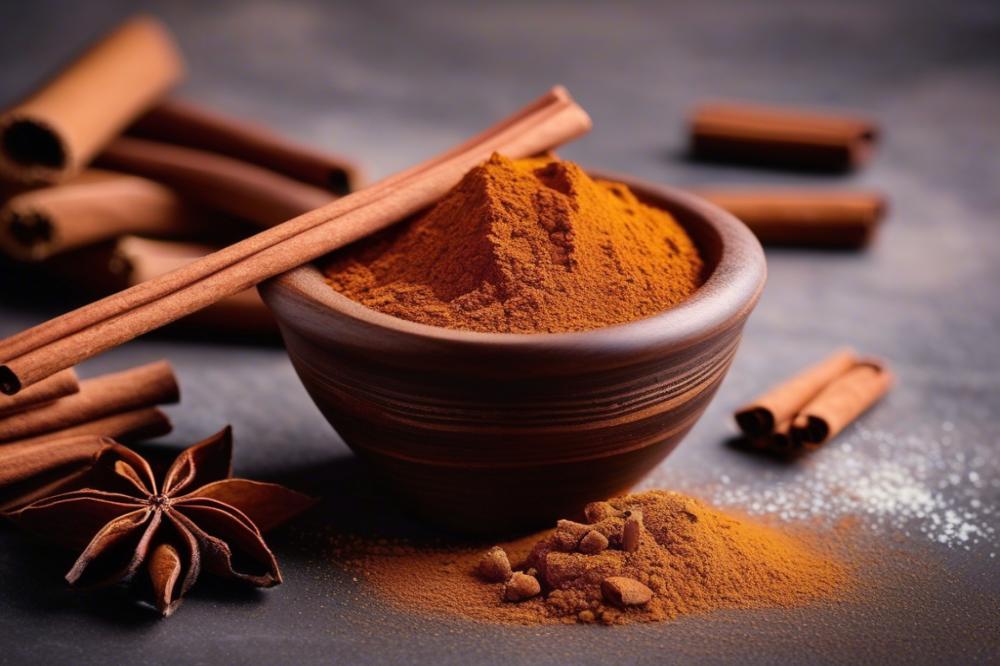

Cinnamon powder is a spice made by grinding the inner bark of cinnamon trees. These trees belong to the genus Cinnamomum. Two main types of cinnamon are commonly used: Ceylon and Cassia. Ceylon is often called “true cinnamon” and is prized for its delicate flavor. Cassia, on the other hand, has a stronger taste and is more widely available.
The composition of this spice includes essential oils, flavonoids, and various antioxidants. Among these compounds, cinnamaldehyde stands out for its significant antifungal properties. This natural compound helps combat various types of fungi. Its presence is why many people consider it a powerful ingredient in promoting health benefits.
Historically, cinnamon has been a staple in herbal medicine around the world. Ancient civilizations used it for a range of ailments, believing in the healing power of plant-based treatments. In many cultures, this spice served not just as a culinary delight but also as a natural remedy for illnesses. The antimicrobial activity of cinnamon was sought after for food preservation long before modern methods were developed.
Today, people still embrace cinnamon for its numerous health benefits. It has become a popular addition to dietary supplements. In addition to its use in cooking, many enjoy its role in wellness routines. This spice offers more than flavor; it provides a way to support our well-being in a natural and accessible manner.
Antifungal Properties of Cinnamon Powder
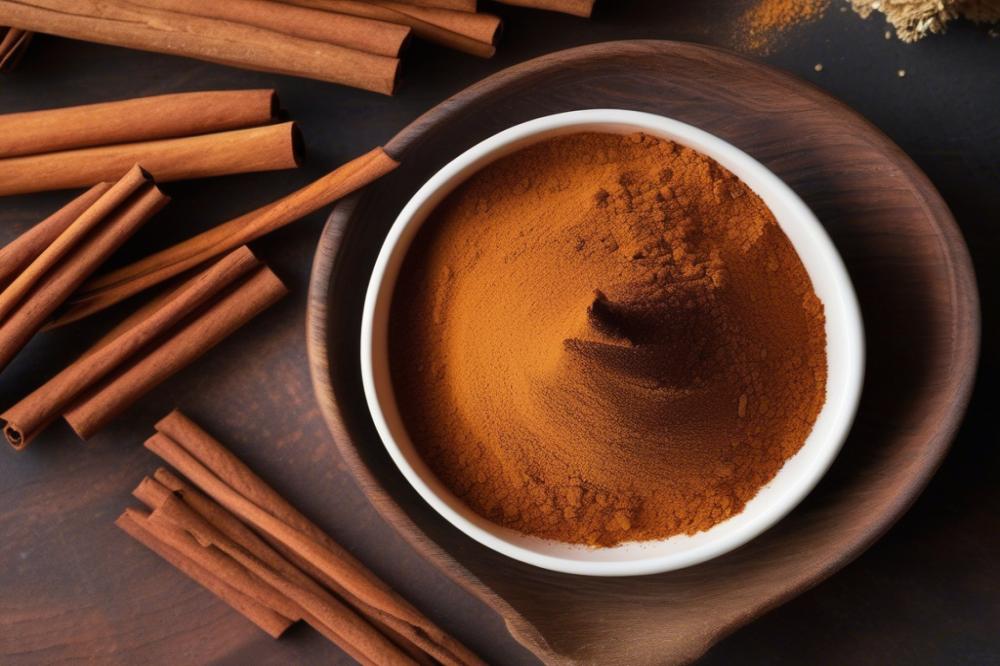

Cinnamon powder boasts remarkable antifungal properties that have captured the interest of scientists and gardeners alike. Various studies highlight its effectiveness against a range of fungal strains, demonstrating its potential as a natural agent in the fight against unwanted growth. Notably, the antimicrobial activity of this spice can play a vital role in preserving the health of your plants.
Research has shown that cinnamon can inhibit the development of fungi such as Aspergillus and Fusarium. These fungi can cause significant damage to plants and crops, leading to reduced yields. By using cinnamon as a natural remedy, you can help protect your garden from these harmful intruders. This approach not only aids in safeguarding your plants but also aligns with the principles of herbal medicine that promote natural solutions.
Not just limited to gardens, cinnamon’s antifungal properties extend to food preservation. Many people turn to this spice to prevent spoilage in various foods. Its essential oils are potent against various microorganisms, providing an added layer of safety for your meals. Thus, incorporating cinnamon into your daily diet can offer health benefits that go beyond flavor.
Using plant-based treatments like cinnamon powder enhances your gardening practices by reducing the reliance on chemical fungicides. These chemicals can harm beneficial organisms in the soil, making natural alternatives a more suitable choice. Including cinnamon as part of your gardening routine may result in healthier plants and a more sustainable environment.
In addition to its effective antifungal properties, cinnamon also acts as a protective barrier against infections, offering a dual purpose. Many dietary supplements now include this spice for its health benefits, making it accessible for a broad audience. When looking for natural solutions, cinnamon represents a uniquely beneficial option, combining practicality with effectiveness.
Whether you are an experienced gardener or just starting, consider how cinnamon powder might aid in your endeavors. Its versatility makes it a valuable tool for maintaining healthy plants while promoting a safer gardening environment. Trust in the power of this natural remedy for your antifungal needs, and watch your garden thrive!
Usage of Cinnamon Powder in Organic Gardening
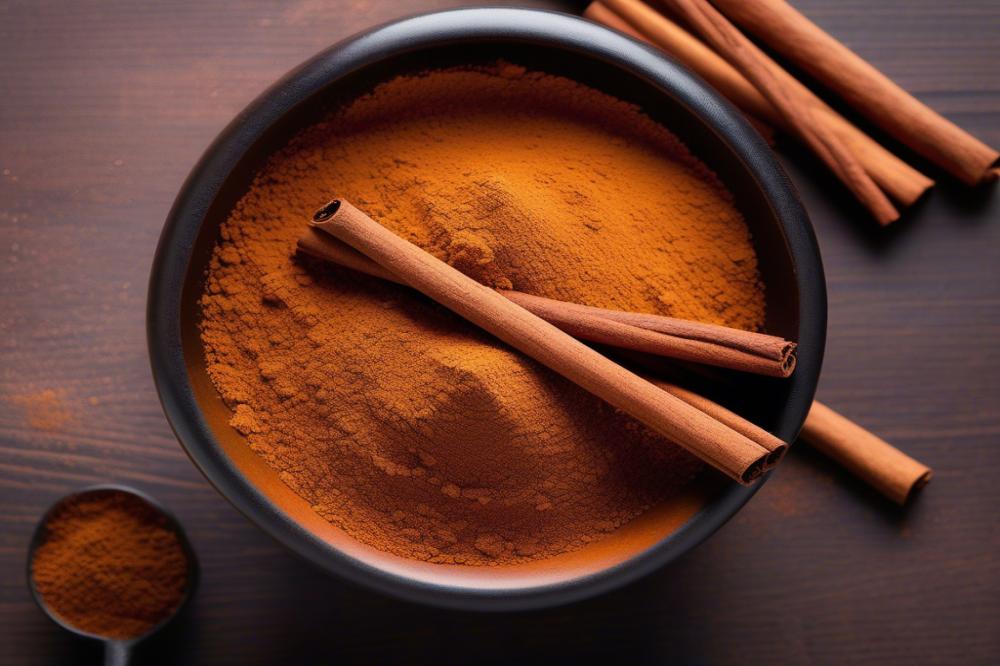

Fungal issues can be a gardener’s worst nightmare. Luckily, there’s an effective and natural solution right in your pantry. Using cinnamon powder offers an easy way to fight off mold, mildew, and other fungal threats in the garden. The antifungal properties of this spice make it a favorite among those who prefer plant-based treatments.
One practical method for application involves dusting cinnamon directly onto the soil. A light sprinkle can create a barrier that fungi find difficult to penetrate. Another method combines the powder with water to create a natural spray. Mix one tablespoon of cinnamon with a quart of water, stir well, and then use a spray bottle. This mixture can be applied to affected plants for immediate relief.
Many gardeners have shared success stories about their experiences with this herbal remedy. For example, one home gardener reported that consistently using the spice led to healthier plants and a significant reduction in fungal infections. With just a little effort, you can enjoy similar results. Additionally, there are reports of using cinnamon essential oils combined with water to combat fungal growth. This method offers even more concentrated antimicrobial activity.
Cinnamon offers more than just antifungal properties. Its health benefits extend to improving soil quality as well. By enriching your garden’s soil, you’re promoting a healthier environment for your plants. Furthermore, these methods are safe and non-toxic, making them suitable for homes with children and pets.
Food preservation using cinnamon isn’t limited to the kitchen. Gardeners have discovered that incorporating this spice not only helps with fungal control but also increases the shelf life of harvested crops. It’s clear that the benefits of cinnamon are not just culinary—they also bring life-saving advantages to your garden.
In summary, embracing this common spice in your gardening routine can yield great results. By using cinnamon powder effectively, you can protect your plants against harmful fungi while enjoying the additional benefits the spice has to offer.
Health Benefits and Food Preservation
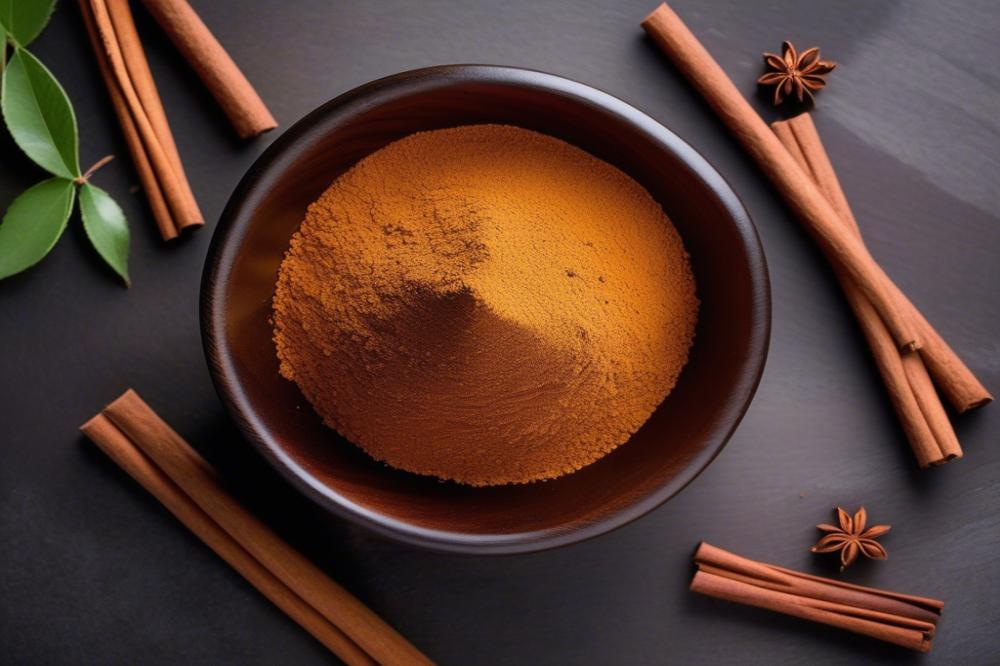

Cinnamon powder brings many health benefits that go beyond gardening. People recognize it for its delicious flavor, but it offers a wealth of advantages for overall well-being. This spice can act as a supplement in your diet, enriching meals while providing essential nutrients. Numerous studies highlight its antifungal properties, making it a valuable addition to your pantry.
The antimicrobial activity of cinnamon is notable. This quality helps fight against harmful bacteria and fungi. By incorporating this spice into your daily regime, you might find that it supports your immune system. It’s also an effective ingredient in herbal medicine, utilized in various natural remedies to combat common ailments. Many people gravitate towards plant-based treatments and appreciate the natural benefits of this powerful spice.
Food preservation is another area where cinnamon shines. Its natural antifungal and antimicrobial properties help to keep food fresh for longer periods. When you sprinkle it on baked goods or incorporate it into recipes, you not only enhance flavor but also improve safety. Using this spice allows for extending the shelf life of many items, reducing food waste.
Essential oils derived from cinnamon can also be very effective. These oils possess similar properties, making them suitable for various uses in cooking and storage. The combination of flavor and preservation benefits makes cinnamon a valuable staple. As a dietary supplement, plain cinnamon powder can easily be added to smoothies, yogurts, and even savory dishes.
Choosing to include cinnamon in your diet means embracing a natural, health-conscious lifestyle. It’s a simple way to boost your nutritional intake while making meals safer. The cinnamon benefits are numerous, from enhancing flavors to providing protective qualities for stored foods.
Combining Cinnamon Powder with Other Natural Remedies
Combining cinnamon powder with other natural remedies can boost its antifungal properties. Essential oils like tea tree oil and oregano oil work well together. These oils offer strong antimicrobial activity, adding extra potency to your treatments.
Cinnamon benefits from these plant-based treatments. For instance, mixing it with clove oil creates a powerful blend. Clove oil is known for its antifungal effects. Together, they can tackle fungal growth effectively.
Incorporating herbal medicine into your regimen can further enhance results. Consider using lavender oil, which also possesses antifungal qualities. This combination not only fights fungus but brings calming health benefits as well. Think of this mix as a two-for-one special for your wellness.
Food preservation is another area where synergy shines. Using cinnamon powder along with rosemary extract has shown promising results. Both have strong antifungal properties, helping to keep your food safe from spoilage.
Dietary supplements can also work in harmony with these natural ingredients. For example, adding probiotics helps balance gut flora. This balance can support the immune system, making it more resilient against fungal infections.
Experimenting with these combinations opens the door to a holistic approach in pest management. Mixing essential oils, cinnamon, and other natural elements can create a formidable defense. This method doesn’t just rely on one ingredient but uses the strengths of several.
When used wisely, these unique combinations can lead to effective outcomes. Explore various ratios and ingredients to find what works best. Remember, nature often has the best answers for our health concerns.
Final Thoughts on Embracing Nature’s Bounty
Cinnamon powder plays a remarkable role in preventing fungal growth. Its antifungal properties offer a natural and effective solution for gardeners struggling with various molds and mildews. This simple spice can act as a protective barrier for plants, promoting healthier growth without relying on harsh chemicals.
Organic methods are becoming increasingly popular among gardening enthusiasts. By choosing cinnamon powder, you can take a step towards more sustainable practices. Not only is it good for your plants, but it also contributes to a healthier environment. Many people overlook this inexpensive and readily available tool in their gardening toolbox.
Incorporating this spice into your gardening routine can yield impressive results. The benefits don’t stop at plant health; you might also discover personal health benefits when adding it to your diet. From boosting immunity to enhancing flavor in meals, the advantages are numerous.
Plant enthusiasts should consider this natural remedy as part of their strategy. By integrating cinnamon into your gardening and cooking, you embrace a lifestyle that promotes well-being and harmony with nature. Giving your plants the best chance to thrive is easier and more affordable than you might think.
In short, welcoming this spice into your gardening practices could change how you view plant care and health. It’s time to celebrate the simple yet powerful benefits of cinnamon powder!

